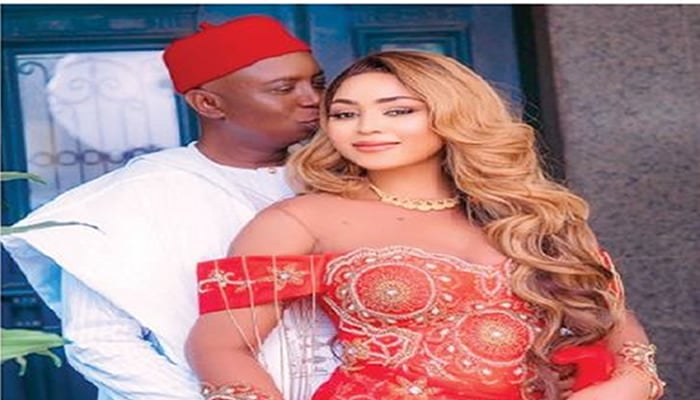Senator Ned Nwoko has broken his silence following a viral video showing his wife, actress Regina Daniels, in distress, describing her recent actions as “drug-influenced” and “unprovoked carnage.”
In a lengthy post and a short video shared on his Instagram handle #princenednwoko on Sunday, Nwoko claimed the actress was battling drug and alcohol abuse, which he said was at the root of the crisis rocking their marriage.
“Regina was not always like this. Her current battle with drugs and alcohol abuse is the root of our problem.
“She must continue her rehabilitation programme, or I fear for her life and safety,” he wrote.
The senator alleged that Regina went on a violent rampage at their home in his absence, attacking staff and destroying property.
“She slapped and hit three staff in the past 48 hours and destroyed property, including cars and windows, for no just cause.
“Now she has moved to a place where she will have unrestricted access to drugs,” the senator alleged
Nwoko said he had offered his wife two rehabilitation options in Asokoro or Jordan, “where she will not have access to drugs.”
He further alleged that the scene at home was worsened by the interference of Regina’s associates, whom he described as “drug suppliers.”
“While I took Moon to the hospital, a scene of chaos unfolded at home, orchestrated by Sammy, Regina’s main drug supplier.
“Another known supplier of drugs to Regina is the tiny evil devil called Ann,”he alleged.
His post came hours after PUNCH Online reported that a video of the actress, visibly agitated and shouting during a confrontation, had gone viral on Saturday, sparking widespread concern.
In the footage, Regina could be heard saying, “In Ned Nwoko’s house, I am nothing, but in my own house, I am a Queen. Not again. I can’t stand the violence, it’s too much.”
Her brother, Ojeogwu Samuel Danhillman, popularly known as Sammy West, also reacted angrily on Instagram, accusing Nwoko of assaulting his sister and vowing to defend her.
“Anywhere wey man dey beat woman, whether na my sister or not, I go fight with my blood,” he wrote.
The cause of the altercation remains unclear, as neither Regina nor her representatives have publicly responded to Nwoko’s allegations.
Regina Daniels, who married Nwoko in 2019, has often been in the public eye alongside the politician and businessman.
The couple’s marriage, marked by a 40-year age gap, has long drawn public attention and debate.
punch.ng
FOLLOW US ON:































